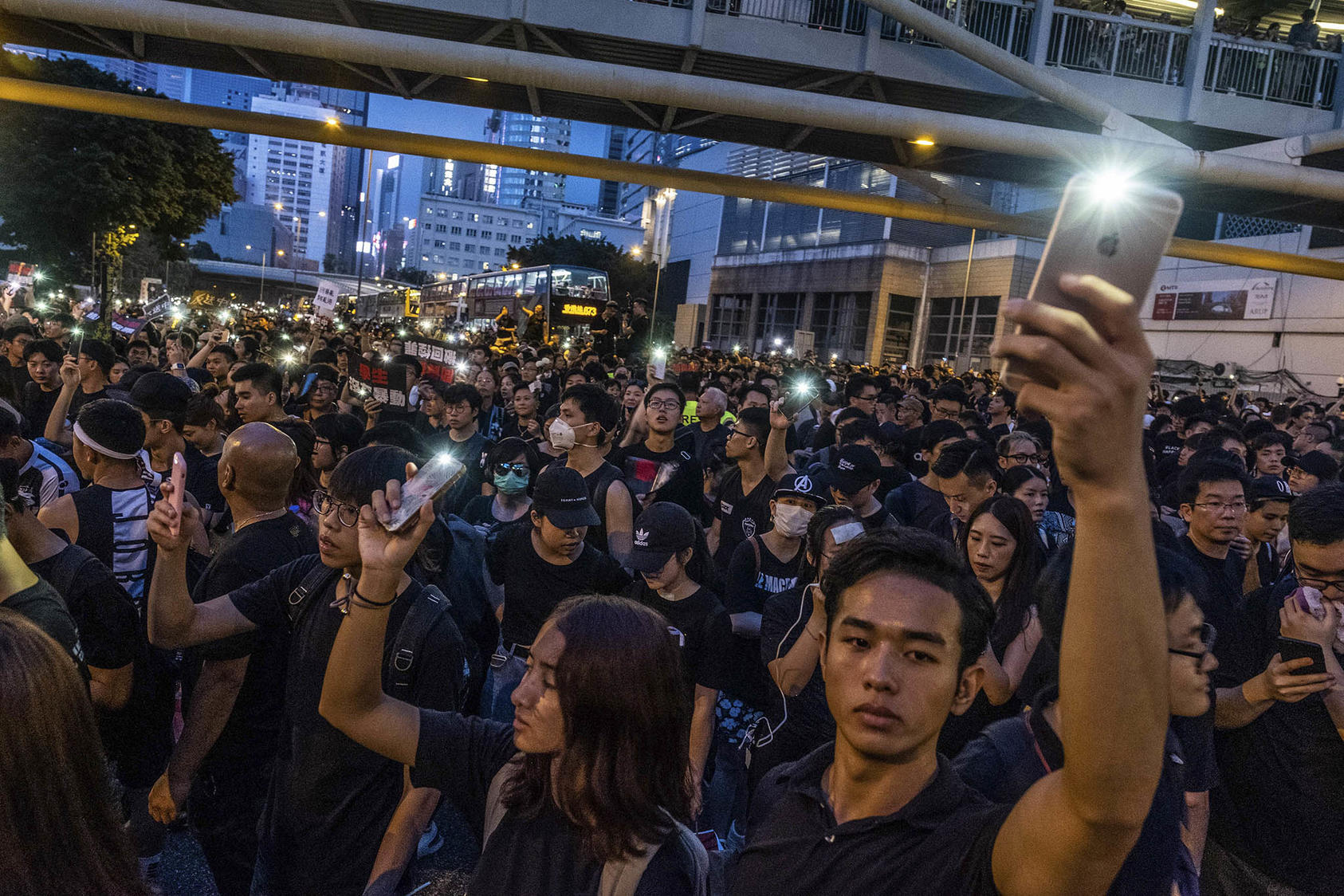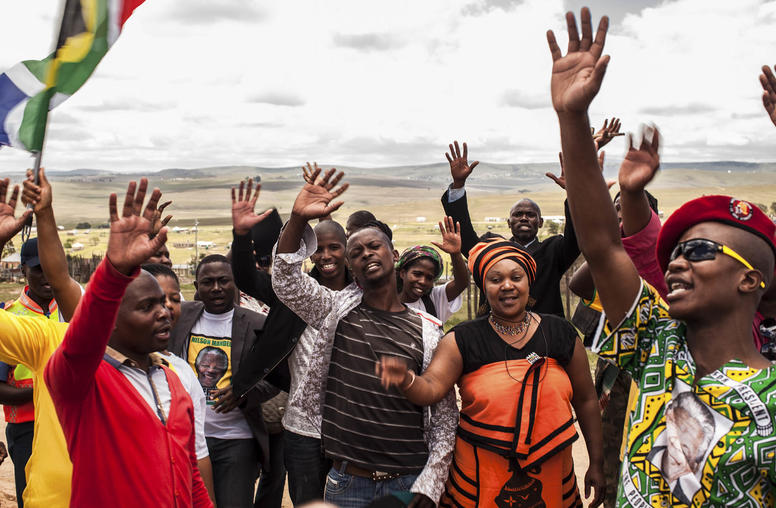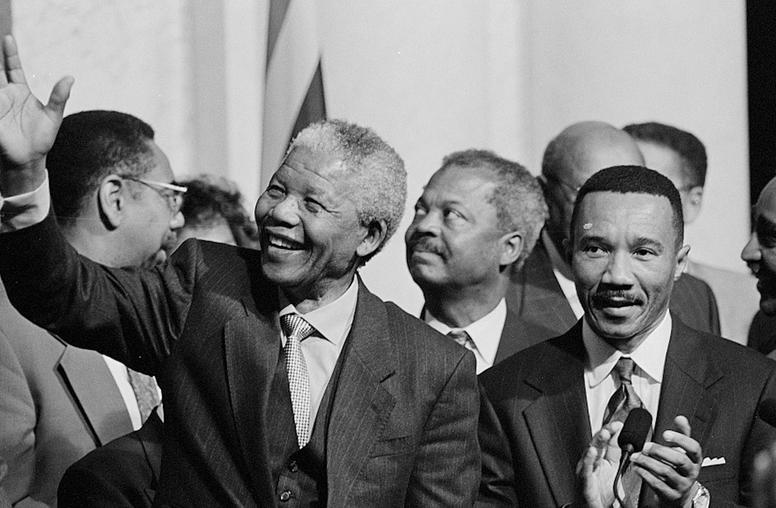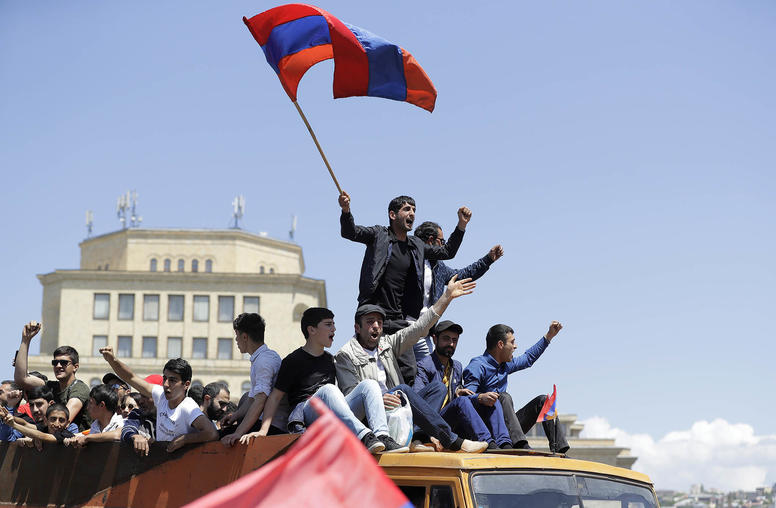Digital Authoritarianism and Nonviolent Action: Challenging the Digital Counterrevolution
Nonviolent action campaigns are one of the most common ways citizens seek to peacefully change nonresponsive political systems. Yet recently developed and emergent technologies are transforming the nature of interactions between activists and authoritarian governments. This report examines the increasingly sophisticated set of tools—such as facial recognition and surveillance of social media platforms—authoritarian regimes are using to stifle nonviolent movements, and provides recommendations for how policymakers and activists can develop creative strategies for overcoming digital authoritarianism.

Nonviolent action campaigns are one of the most common ways citizens seek to peacefully change nonresponsive political systems. Yet recently developed and emergent technologies are transforming the nature of interactions between activists and authoritarian governments. This report examines the increasingly sophisticated set of tools—such as facial recognition and surveillance of social media platforms—authoritarian regimes are using to stifle nonviolent movements, and provides recommendations for how policymakers and activists can develop creative strategies for overcoming digital authoritarianism.
Summary
- Nonviolent action campaigns, in which ordinary citizens use tactics such as protests, strikes, and boycotts to put pressure on power holders, have been one of the most effective ways of peacefully bringing about change in nonresponsive autocratic countries.
- These campaigns are increasingly shaped by emergent technologies—the internet, social media, artificial intelligence, and facial recognition—that offer significant benefits to nonviolent action. At the same time, these technologies are increasingly advantaging authoritarian regimes, which use them to suppress dissent and sustain oppressive political systems.
- These technologies present two key challenges: they make public life more legible to the state and reduce opportunities for nonviolent action to spark defections from among regime loyalists.
- The challenges are illustrated in the ways two authoritarian regimes, China and Russia, have developed tools of censorship, propaganda, and surveillance using newer technologies.
- As authoritarian regimes use these technologies to an ever-greater extent, it is crucial for policy-makers and activists to respond to the challenges of increased legibility and decreased defection.
About the Report
This report examines how use of newer and emergent technologies affects nonviolent action campaigns. It identifies two significant related challenges and presents evidence of these dynamics at work in two digital autocracies, China and Russia. It was funded through an interagency agreement between the United States Institute of Peace (USIP) and the U.S. Agency for International Development’s Center for Democracy, Human Rights, and Governance.
About the Authors
Matthew Cebul is a research officer with the Program on Nonviolent Action at USIP, where he conducts multimethod research on nonviolent action and its implications. Jonathan Pinckney is a senior researcher with the Program on Nonviolent Action at USIP and the author of From Dissent to Democracy: The Promise and Peril of Civil Resistance Transitions, which was published by Oxford University Press in 2020.



